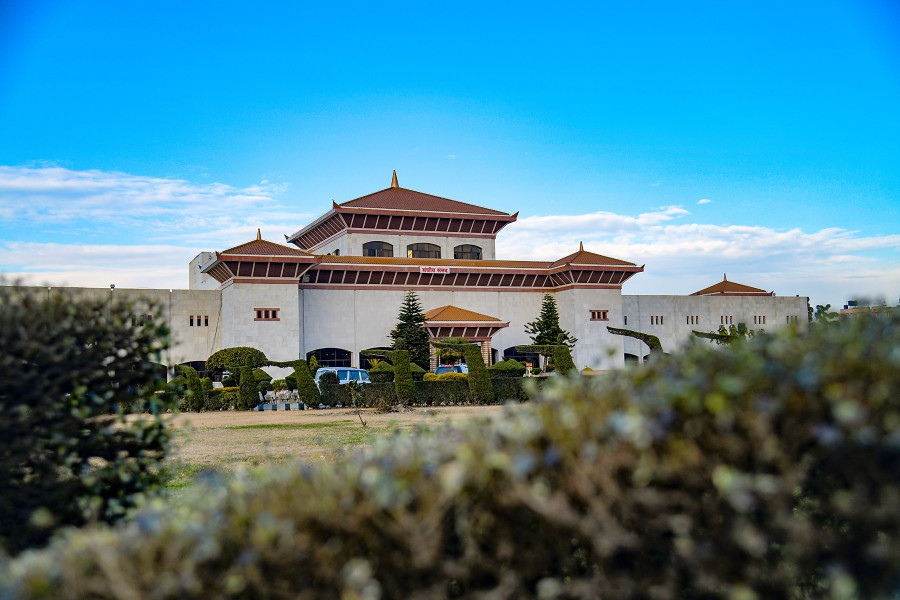Editorial
Laws for all
Lawmakers must indulge in proper deliberations to make the law-making process transparent.
A robust lawmaking process demands rigorous scrutiny by Parliament. That is why lawmakers elections are essential and we vote for leaders thinking they will be instrumental in the law-making process. Every election cycle, we vote thinking our chosen representative will advance crucial social, economic and political issues in Parliament and draft bills that aim to represent the people. But in a country like ours, we are often duped. The political parties hardly encourage public participation in lawmaking and with the Oli-administration taking over, most bills are often bulldozed rather than passed through extensive deliberation in Parliament. This is a worrisome trend, as such a practice will encourage lawmakers to misuse their power and believe they are not accountable to the broader citizenry.
The constitution of 2015 is a case in point. Following the devastating Gorkha Earthquake, Nepali political parties had rushed the constitution without collecting feedback from the members of the public. In a similar fashion, many important bills have been introduced or passed without consulting with the public and civil society members, curtailing people’s social and political rights. The consultation phase, which has been in practice for a long time, is considered a critical element of the democratic exercise of lawmaking.
When the government introduced the Media Council Bill in May 2019, the bill was shrouded in secrecy for months. It aimed to curtail freedom of speech—a right guaranteed by the constitution. Similarly, the IT Management Bill, which gave sweeping powers to authorities to block social media platforms if they are not registered in Nepal, was silently pushed through Parliament, as well. Both the bills have been extremely controversial, and in hindsight, it can be understood why the government chose to move forward with the bill without discussing its provisions with the concerned individuals.
The current government almost enjoys a two-third majority in the Parliament. With that kind of strength, the government can pass any bill. But scrutiny should not be impacted by either the strength of numbers in Parliament or political agreement on issues. What’s more, the Nepali Congress as the current opposition has been unable to mount a proper challenge to the ruling party.
One way of ensuring this robustness is making it a requirement to refer all bills to Parliamentary committees. And in the committees, a well-laid out process of debate is a must. Only when the lawmakers indulge in proper deliberations can there be transparency in the law-making process. Since laws impact everyone in the country, it cannot be crafted in an opaque manner.
Lest the incumbent government forget, Nepal is still a democracy where people send their representatives as lawmakers. Given that, the government must reach out to all across the aisle, be generous and accommodate those on the other side of the political fence as well as discuss crucial bills in Parliament. The law-making process must strive to be a deliberative process where a plurality of views are encouraged rather than shunned and ignored.
***
What do you think?
Dear reader, we’d like to hear from you. We regularly publish letters to the editor on contemporary issues or direct responses to something the Post has recently published. Please send your letters to [email protected] with "Letter to the Editor" in the subject line. Please include your name, location, and a contact address so one of our editors can reach out to you.




 18.12°C Kathmandu
18.12°C Kathmandu














